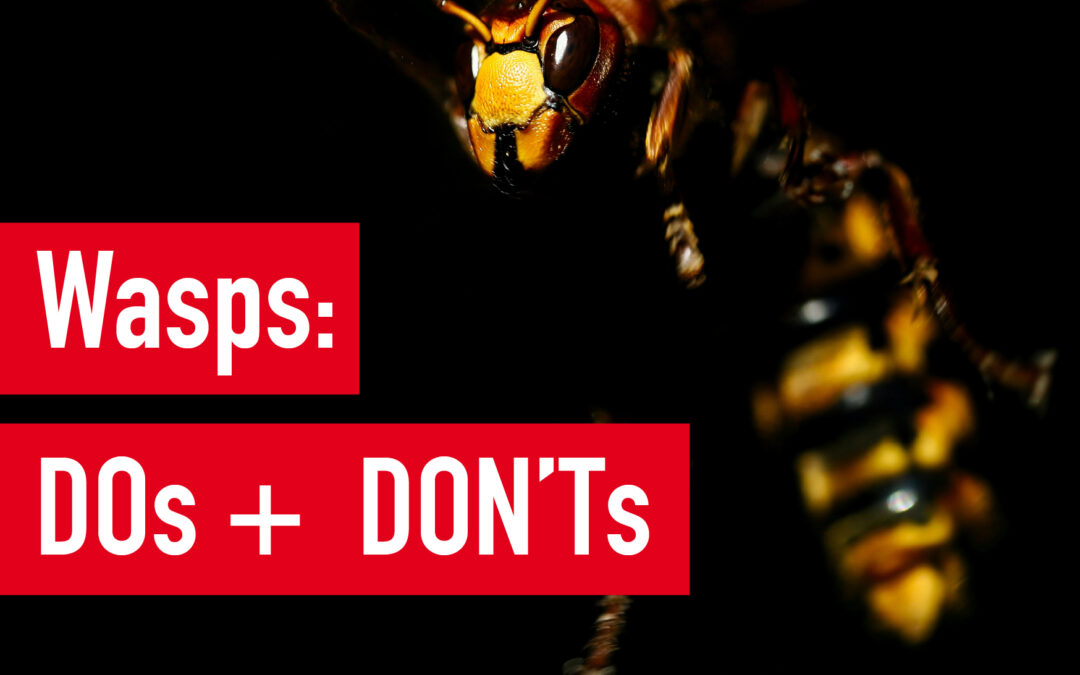DOs
If a wasp approaches you, always remain still. Wasps get attracted to movement as to them, it’s a sign of attack.
As funny as it sounds, if you have to run away, do so in a straight line, Flailing arms only aggravate wasps more as they see it as a sign of attack.
Wasps tend to attack the head and face first, so always protect your head and face.
Carefully dispose of all food and drinks, especially soft drink cans as these attract all manner of pests, not just wasps.
There is research has indicated that a combination of clove, geranium and lemongrass essential oils can repel wasps. Or for a more refreshing concoction, try peppermint or spearmint, lemongrass and thyme. Mix approximately 15 drops with a cup of soapy water, pop it in a spray bottle and used to spray your home and spaces.
Mix two tablespoons of dish soap into a spray bottle of water and spray it on the nests. The mixture will clog the wasps’ breathing pores and kill them instantly.
Make a wasp trap – Wasp traps work by luring the insects inside a container with some tempting treat, like sugar water, and then preventing them from escaping. You can make one yourself in about five minutes by sawing the top off a two-litre bottle and inverting it inside the bottom, or cutting a small hole in the top. Best to position these traps a little distance away from where you are!
If you want to keep wasps from invading your house, preventative measures are key by sealing up tiny cracks. The best time to do this is in late Autumn after most worker wasps have died off, or in early spring before nests become active
Always a professional to remove any nest in your home, business or nearby.
DON’Ts
Do not attempt to swat a wasp. You’ll make it more aggressive.
Another funny one… as wasps sting more than once, don’t try to play dead… the wasp will simply keep stinging you! Bees are different as they will only sting once and then die shortly after.
Interestingly, if you go under water to try and ‘hide’ or protect yourself, wasps will wait till you get out of the water. Sneaky little things!
Wasps are attracted to scents and bright clothing, so if you have a nest nearby, avoid such things.
We strongly recommend that you don’t try to remove a nest yourself. In case of an unknown allergy, and the fact you don’t have the specialist equipment, we always recommend getting a professional in. Not to mention, a DIY job may not permanently get rid of the problem thus the potential to provoke the wasps in the nest.

